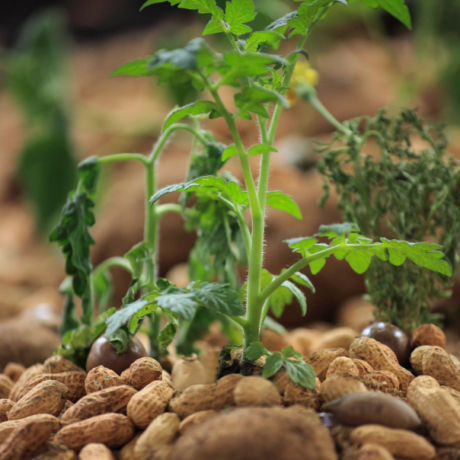Home / Groundnut
Home / Groundnut


Groundnut is the one of the world’s important oilseed crops. Its seeds are rich sources of edible oil (43-55%) and protein (25-28%). China and India are the major producers of groundnut followed by Sub- Saharan African countries and central South America.
Groundnuts contain five important nutrients namely food energy, protein, phosphorous, thiamin and niacin. It maintains and repairs body tissues. Groundnuts contain 13 different vitamins (including Vitamin A, B, C and E) along with 26 essential trace minerals, including calcium and iron.
The groundnut is the only nut that grows below the earth. The groundnut plant is a variable annual herb, which grows up to 50 cm. in height. The flowers of the plant develop a stalk which enters into the soil, forms a pod containing generally two seeds. They become mature in about two months, when the leaves of the plant turn yellow. The plant is then removed from the earth and allowed to dry. After three to six weeks they are separated from the plant. The groundnut is particularly valued for its protein contents, which is of high biological value and it contain more protein than meat-about two and a half times more than eggs, and far more than any other vegetable food except soybean and yeast.
Eating freshly roasted groundnuts with jaggery and goat’s milk is very nutritious for growing children, pregnant women, and nursing mothers. It builds a resistance against all infections, such as Hepatitis and tuberculosis.
Groundnuts have good dietary fiber content so they are very good for digestion.
Groundnuts can be eaten raw or after roasting or processing into peanut butter.
Groundnut oil can be extracted from the nuts and has a variety of uses including use as cooking oil or in soaps or lubricants.


24 months from production date
Store in cool, dry, hygienic conditions
